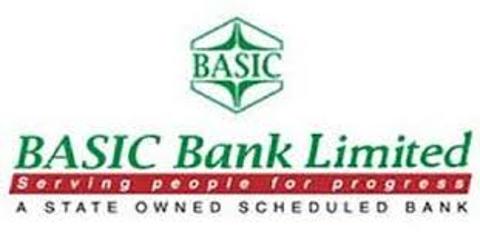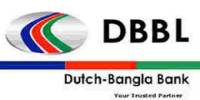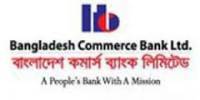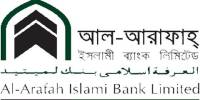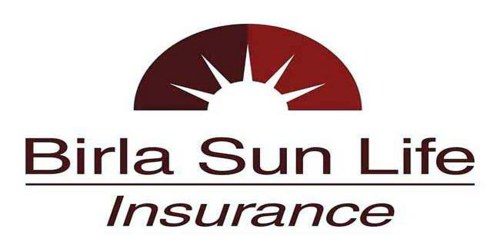The main objective of this report is to highlight on the major documents used by BASIC Bank Limited. While dealings with foreign exchange banking. Other objectives are to appraise export, import and remittance of the same bank. Finally identify problems of foreign exchange banking and suggest suggestions for improvement of foreign banking of the given bank.
OBJECTIVES OF THE STUDY
(i) Main objectives:
The main objective of the study is to highlight on the major documents used by BASIC Bank Ltd. While dealings with foreign exchange banking.
(ii) Specific objectives:
- To identify the documents used in foreign trade of BASIC Bank Ltd.
- To appraise export, import & remittance of the same bank.
- To identify problems of foreign exchange banking of the selected bank.
- To suggest suggestions for improvement of foreign banking of the given bank.
METHODOLOGY OF THE STUDY
Primary Data were collected by the Following Ways:
- Direct communication with bank officials & clients;
- Exposure on different desk of the bank;
- File study;
- Observing various organizational procedures.
The Main Secondary Sources from Which Data were Accumulated are as Follows:
- Annual Report of BASIC Bank Ltd.;
- Periodicals published by the Bangladesh Bank;
- Different publications regarding foreign exchange operation;
- From Newspapers and Internet.
We have covered both head office and UTTARA branch of BASIC Bank. But the body of the report is prepared in the light of the branch. Only International Department (ID) part is covered in the Head Office.
CAPITAL POSITION
Authorized capital : Tk. 2000 million
Paid up capital : Tk. 945 million.
Total Reserve and Surplus : Tk. 1,294.00 million; up to 31.12.2006
The Bank is required to transfer 20 percent of its net profit before Tax to Capital Fund as per the Banking Companies Act 1991.
Activities
Industrial Credit
BASIC Bank’s services are directed towards the entrepreneurs in the small industries sector. A small industry, as per Industrial policy 1999 approved by the Cabinet, has been defined as an industrial undertaking whose total fixed investment is less than Tk.100 million.
The industrial loan reflected a significant growth of 22.59 percent over the previous year. Total outstanding industrial loans including term and working capital stood at Taka 12,243.56 million at the end of 2006 compared to Taka 9,987.50 million of 2005. Total outstanding term loan stood at Taka 3,897.12 million as on December 31, 2006 compared to Taka 3,517.85 million in 2005 reflecting a growth of 10.78 percent. The outstanding working capital finance extended to industrial units stood at Taka 8,346.44 million at the end of the reporting period compared to Taka 6,479.71 million in 2005. Growth rate here was 29.00 percent. BASIC Bank’s services are specially directed towards promotion and development of small industries. Its exposure to small and medium industries sector accounted for 53.43 percent of the total loans and advances. During the year total of 159 projects were sanctioned term loan. Out of which 89 were new and the rest were under BMRE of the existing projects. As on 31 December, 647 projects were in the portfolio of the bank. The textile sector including garments being one of the major contributors to national economy dominated the loan portfolio of the Bank. Other sectors financed include engineering; food and allied industries; chemicals, pharmaceuticals and allied industries; paper, board, printing and packaging; glass; ceramic; and other non-metallic goods and jute products. Recovery rate of project loan was 89 percent.
Commercial Credit
The Bank also supports development of trade, business and other commercial activities in the country. It covers the full range of services to the exporters and importers extending various facilities such as cash credit, export cash credit, packing credit, short term loans, local and foreign bills purchase facilities. As on December31, 2006 total outstanding commercial loans stood at Taka 6,397.21 million Compared to Taka 5,013.55 million in 2005.
Micro Credit
BASIC Bank launched a Micro Credit Scheme in 1994. Micro Credit Scheme provides for the poor for generation of employment and income on a sustainable basis particularly in urban and suburban areas. The Bank follows three systems of credit delivery.
These are:
- Lending to the NGOs who on-lend to their members. At present there are 15 such NGOs.
- Lending direct to the targets groups or ultimate borrowers under the Bank’s own management.
- Lending direct to the member-borrowers and NGOs providing nonfinancial services like group formation and monitoring and supervision on exchange for a supervision fee.
At the end of 2006, total amount of Taka 359.24 million remained outstanding as against Taka 338.30 million in 2005. Recovery rate during this period remained at a satisfactory level of 100.00 percent.
Foreign Trade
The bank achieved substantial growth in export in 2006 and the performance of the bank in import business was also satisfactory. The Bank handled total export business of Taka 15,463.74 million and import business of Taka 17,804.27 million in 2005. The export and import business grew by 39.34 percent and 26.32 percent respectively. Major items of exports were garments, jute products, textile, leather etc. Items of import included mainly industrial raw materials, garments accessories, capital machinery, food items and other essential commodities.
The Bank became a proud member of SWIFT (Society for Worldwide Interbank Financial Telecommunication) that would pave the way to achieving uninterrupted communication related to banking for international trade business and fund transfer.
Other Activities
The Bank provides services for remittance, underwriting, guarantee, public offering of shares etc. The bank also provides funds to investment and leasing companies. The Bank has recently created a venture capital fund for equity support to innovative but risky projects.
Foreign Exchange
Foreign Exchange means foreign currency and it includes any instrument drawn, accepted, made or issued under clause (13), Article 16 of the Bangladesh Bank Order, 1972. All deposits, credits and balances payable in any foreign currency and draft, travelers cheque, letter of credit and bill of exchange expressed or drawn in Bangladeshi currency but payable in any foreign currencies.
Bangladesh Bank issues Authorized Dealer (AD) license by observing the bank’s performance and also the customers associated with the bank for conducting foreign dealings.
EXPORT SECTION:
Foreign Exchange Regulation Act, 1947 nobody can export by post and otherwise than by post any goods either directly or indirectly to any place outside Bangladesh, unless a declaration is furnished by the exporter to the collector of customs or to such other person as the Bangladesh Bank (BB) may specify in this behalf that foreign exchange representing the full export value of the goods has been or will be disposed of in a manner and within a period specified by BB.
Bangladesh exports a large quantity of goods and services to foreign households. Readymade textile garments (both knitted and woven), Jute, Jute-made products, frozen shrimps, tea are the main goods that Bangladeshi exporters exports to foreign countries. Garments sector is the largest sector that exports the lion share of the country’s export. Bangladesh exports most of its readymade garments products to U.S.A and European Community (EC) countries. Bangladesh exports about 40% of its readymade garments products to U.S.A. Most of the exporters of BASIC Bank are readymade garment exporters. They open export L/Cs here to export their goods, which they open against the import L/Cs opened by their foreign importers.
SCRUTINY AND NEGOTIATION OF EXPORT BILL
Bank deals with documents not with goods. The bankers are to ascertain that the documents are strictly as per terms of L/C. Before negotiation of the export Bill the bankers are to scrutinize and examine each and every document’s with care. Negligence on the part of the bankers may result in non repatriation or delay in realization of export proceeds as incorrect documents may put the importers abroad into unnecessary troubles.
The scrutiny of the Bill of Exchange (Draft) and other related documents should ensure that.
- The documents are presented for negotiation before the expiry of the relative credit.
- The amount does not exceed the amount available under the credit.
- All the documents stipulated in the L/C are submitted.
- The corrections and alteration are properly authenticated in all documents.
Export documents checking:
General verification:
- L/C restricted or not.
- Exporter submitted documents before expiry date of the credit.
- Shortage of documents etc.
Particular verification: Each and every document should be verified with the L/C.
Cross verification: Verified one documents to another.
While checking the export documents following things must be taken in consideration.
L/C terms:
Each and every clause in the L/C must be complied with meticulously and ensure the following:
- That the documents are not state;
- That the documents are negotiated within the L/C validity, It a credit expire on a recognized bank holiday its life is automatically become valid upto the next works day.
- That the documents value does not exceeds the L/C value.
Draft/Bill of Exchange
Draft is too examined as under:
- Draft must be dated
- It must be made out in the name of the beneficiary’s bank or to be endorsed to the bank.
- The negotiating bank must verify the signature of the drawer.
- Amount must be tallied with the Invoice amount.
- It must be marked as drawn under L/C No. dated issued by ……….. Bank.
Presentation of export documents for negotiation:
After shipment, exporter submits the following documents to BASIC Bank for negotiation.
- Bill of Exchange or Draft;
- Bill of Lading
- Invoice
- Insurance Policy/Certificate
- Certificate of origin
- Inspection Certificate
- Consular Invoice
- Packing List
- Quality Control Certificate
- S.P. certificate
Import:
Imports are foreign goods and services purchased by consumers, firms & Governments in Bangladesh. To import, a person should be competent to be a ‘importer’. According to Import and Export Control Act, 1950, the Office of Chief Controller of Import and Export provides the registration (IRC) to the importer.
BASIC Bank checks the documents. The usual documents are,-
- Invoice
- Bill of lading
- Certificate of origin
- Packing list
- Weight list
- Shipping advice
- Non-negotiable copy of bill of lading
- Bill of exchange
- Pre-shipment inspection report
- Shipment certificate
Import Procedures:
Registration with CCI&E
- For engaging in international trade, every trader must be first registered with the Chief Controller of Import and Export.
- By paying specified registration fees and submitting necessary papers to the CCI&E. the trader will get IRC (Import Registration Certificate).After obtaining IRC, the person is eligible to import.
- Purchase Contract between importers and exporter:
- Now the importer has to contact with the seller outside the country to obtain the proforma invoice / indent which describes goods.
- Indent is got through indenters a local agent of the sellers.
- After the importer accept the preformed invoice, he makes a purchase contract with the exporter declaring the terms and conditions of the import.
- Import procedure differs with different means of payment. In most cases import payment is made by the documentary letter of credit (L/C) in our country.
Collection of LCA form:
Then the importer collects a Letter of Credit Authorization (LCA) form from BASIC Bank UTTARA Branch.
Opening a Letter of Credit (L/C)
In international environment, buyers and sellers are often unknown to each other. So seller always seek guarantee for the payment for his goods exported. Here is the role of bank. Bank gives export guarantee that it will pay for the goods on behalf of the buyer. This guarantee is called Letter of Credit. Thus the contract between importer and exporter is given a legal shape by the banker by its ‘Letter of Credit’.
Parties of L/C
- Importer – Seller who applies for opening an L/C.
- Issuing Bank – It is the bank which opens/issues a L/C on behalf of the importer.
- Confirming Bank – It is the bank, which adds its confirmation to the credit and it, is done at the request of issuing bank. Confirming bank may or may not be advising bank.
- Advising / Notifying Bank – is the bank through which the L/C is advised to the exporters. This bank is actually situated in exporter’s country. It may also assume the role of confirming and / or negotiating bank depending upon the condition of the credit.
- Negotiating Bank – is the bank, which negotiates the bill and pays the amount of the beneficiary. The advising bank and the negotiating bank may or may not be the same. Sometimes it can also be confirming bank.
- Paying / Accepting Bank – is the bank on which the bill will be drawn (as per condition of the credit). Usually it is the issuing bank.
- Reimbursing bank – is the bank, which would reimburse the negotiating bank after getting payment – instructions from issuing bank.
Application For L/C limit:
Before opening L/C, importer applies for L/C limit. To have an import L/C limit, an importer submits an application to the Department of BASIC Bank Limited furnishing the following information, –
- Full particulars of bank account maintained with BASIC Bank Ltd. Uttara branch.
- Nature of business
- Required amount of limit
- Payment terms and conditions
- Goods to be imported
- Offered security
- Repayment schedule
A credit Officer scrutinizes this application and accordingly prepares a proposal (CLP) and forwards it to the Head Office Credit Committee (HOCC). The Committee, if satisfied, sanctions the limit and returns back to the branch. Thus the importer is entitled for the limit.
The L/C Application:
After getting the proforma invoice importer applies to the bank to open a letter of credit on behalf of him with required papers.
- Documentary Credit Application Form: BASIC Bank provides a printed form for opening of L/C to the importer. This form is known as Credit Application form. A special adhesive stamp is affixed on the form. While opening, the stamp is cancelled. Usually the importer expresses his desire to open the L/C quoting the amount of margin in percentage.
- Proforma Invoice: It states description of the goods including quantity, unit price etc.
- The insurance cover note: The name of issuing company and the insurance number are to be mentioned on it.
- The Letter of credit authorization (LCA) form: LCA form should be duly attested.
- The Form-IMP.
- Tax Information Certificate
Forwarding for Pre-Shipment Inspection (PSI): Importer sends forwarding letter to exporter for Pre-Shipment Inspection. But all types of goods do not require PSI.
Securitization of L/C Application:
The BASIC Bank Official scrutinizes the application in the following manner, –
- The terms and conditions of the L/C must be complied with UCPDC 600 and Exchange Control & Import Trade Regulation.
- Eligibility of the goods to be imported.
- The L/C must not be opened in favor of the importer.
- Radioactivity report in case of food item.
- Survey report or certificate in case of old machinery
- Carrying vessel is not of Israel or of Serbia- Montenegro
- Certificate declaring that the item is in operation not more than 5 years in case of car.
Examination of shipping documents:
One of the basic principles of documentary credit is that all parties deal with document and not with goods (Articles 6 of UCPDC-600). That is why the documents should be scrutinized properly. If any discrepancy in the documents is found, that is to be informed to the party. A checklist may be followed for examining the documents.
Major Discrepancies:
After proper examination or checking of a described Export document we may find following discrepancies:
GENERAL
- Late shipment
- Late presentation
- L/C expired
- L/C over-drawn
- Partial shipment or transshipment beyond L/C terms.
BILL OF EXCHANGE (B/E)
- Amount of B/E differ with Invoice.
- Not drawn on L/C issuing Bank.
- Not signed
- Tenor of B/E not identical with L/C.
- Full set not submitted.
COMMERCIAL INVOICE(C/I)
- Not issued by the Beneficiary.
- Not signed by the Beneficiary.
- Not made out in the name of the Applicant
- Description, Price, quantity, sales terms of the goods not corresponds to the Credit.
- Not marked one fold as Original.
- Shipping Mark differs with B/L & Packing List.
PACKING LIST
- Gross Wt., Net Wt. & Measurement, Number of Cartoons/Packages differ with B/L.
- Not market one fold as Original.
- Not signed by the Beneficiary.
- Shipping marks differ with B/L.
BILL OF LADING / AIRWAY BILL ETC (TRANSPORT DOCUMENTS)
- Full set of B/L not submitted.
- B/L is not drawn or endorsed to the Order of Prime Bank Ltd.
- “Shipped on Board”, “Freight Prepaid” or “Freight Collect” etc. notations are not marked on the B/L.
- B/L not indicate the name and the capacity of the party i.e. carrier or master, on whose behalf the agent is signing the B/L.
- Shipped on Board Notation not showing name of Pre-carriage vessel/intended vessel.
- Shipped on Board Notation not showing port of loading and vessel name ( In case B/L indicates a place of receipt or taking in charge different from the port of loading).
- Short Form B/L
- Charter party B/L
- Description of goods in B/L not agree with that of Invoice, B/E & P/L
- Alterations in B/L not authenticated.
- Loaded on Deck.
- B/L bearing clauses or notations expressly declaring defective condition of the goods and/or the packages.
OTHERS
- N.N. Documents not forwarded to buyers or forwarded beyond L/C terms.
- Inadequate number of Invoice, Packing List, B/L & Others submitted.
- Short shipment Certificate not submitted.
Invoice
It is to be scrutinized to ensure the following:
- The Invoice is addressed to the Importer
- The full description of merchandise must be given in the invoice strictly as per L/C.
- The price, quality, quantity, etc. must be as per L/C.
- The Invoice must be language in the language of L/C.
- No other charges are permissible in the Invoice beyond the stipulation on the L/C.
- The amount of draft and Invoice must be same and within the L/C value.
- If L/C calls for consular invoice, then the beneficiary’s invoice is not sufficient.
- Number of Invoice will be submitted as per L/C.
- The shipping mark and number of packing list shown in the B/L must be identical with those given in the Invoice and other documents.
- The Invoice value must not be less than the value declared in EXP Forms.
- Invoice amount must be correct on the basis of price, quantity as per L/C.
- Invoice amount, indicate sale terms/ Income terms VIZ FOB, CFR, CIF etc.
- Consular Invoice must be stamped by the local consulate/embassy of the country to which the goods are imported.
OTHER DOCUMENTS
Beneficiary statement, VISA/Export License issued by EPB, Certificate of Origin, Weight Certificate, Packing List, Inspection Certificate.
Certificate of analysis, quality certificate, MCD duly signed and any other documents required by L/C each of these certificates/documents conform to the goods invoice and are relevant to L/C.
Negotiating Bank will check the above documents whether it is as per L/C or not. If Negotiating Bank find everything in order or as per export L/C, bank will negotiate the document and will disburse the generated fund as per Banks norms.
If the Negotiating Bank will find any discrepancies in the documents. They will send the documents on collection or they can negotiate under reserve by the request of the exporter or they can seek permission/Negotiation authority from issuing Bank to allow Negotiating Bank to negotiate the documents despite the discrepancies. L/C issuing Bank will inform the matter to buyer, if the buyer accept the discrepancies mentioned by Negotiating Bank, issuing bank will authorize the Negotiating bank to negotiate the discrepant documents.
COLLECTION DOCUMENTS
Normally negotiating Bank will send the documents on collection basis mainly for the following discrepancies.
- L/C expired;
- Late shipment;
- Late presentation;
- L/C overdrawn;
- Unit price differ between L/C and Commercial Invoice;
- Consignee Name and address differ between L/C and other documents.
- Discrepancies in B/L;
- Any other Major discrepancies.
FOREIGN REMITTANCE SECTION
The basic function of this department are outward and inward remittance of foreign exchange from one country to another country. In the process of providing this remittance service, it sells and buys foreign currency. The conversion of one currency into another takes place at an agreed rate of exchange, in where the banker quotes, one for buying and another for selling. In such transactions the foreign currencies are like any other commodities offered for sales and purchase, the cost (convention value) being paid by the buyer in home currency, the legal tender.
Workings of this department:
- Overall supervision of Foreign Remit. Dept.
- Foreign TT payment & Purchase of F. Drafts, preparations of F.B.P. (Foreign Bill Purchased).
- Issuance of outward TT & FDD.
- Issuance of proceed responding certificate (PRC).
- Foreign Collection, Bangladesh Bank Clearing Check Collection, which comes from all branch of BASIC Bank Limited.
- Withdrawal from F.C. A/C.
- Encashment of T.C. & Cash Dollar and Sterling Pound.
- Deduction of Tax and VAT. On behalf of Bangladesh Bank.
- Preparation of related statements including convertible Taka Accounts.
- Preparation of IBCA & IBDA and Balancing of Collection and other special assignment as desired by Department in charge.
- Balancing of Account Statements.
- Compliance of audit & inspection.
- Statement of all related works submitted to Bangladesh Bank.
Inward Foreign Remittance:
Inward remittance covers purchase of foreign currency in the form of foreign T.T., D.D, T.C. and bills etc. sent from abroad favoring a beneficiary in Bangladesh. Purchase of foreign exchange is to be reported to Exchange control Department of Bangladesh bank on Form-C.
Outward Foreign Remittance:
Outward remittance covers sales of foreign currency through issuing foreign T.T. Drafts, Travelers Check etc. as well as sell of foreign exchange under L/C and against import bills retired. Sale of foreign exchange is reported to Exchange control Department of Bangladesh Bank on form T/M.
Foreign exchange means foreign currency and includes all deposits, credits and balances payable in foreign currency as well as foreign currency instruments such as Drafts, T.C.s, bill of exchange, and Letters of Credit Payable in any Foreign Currency. All foreign exchange transactions in Bangladesh are subject to exchange control regulation of Bangladesh Bank.
Identification of Documents Used in Foreign Exchange Banking:
The Following Documents are Used in Export:
- Bill of Exchange or Draft;
- Bill of Lading
- Invoice
- Insurance Policy/Certificate
- Certificate of origin
- Inspection Certificate
- Consular Invoice
- Packing List
- Quality Control Certificate
- G.S.P. certificate
The Following Documents are Used in Import :
- Invoice
- Bill of lading
- Certificate of origin
- Packing list
- Weight list
- Shipping advice
- Non-negotiable copy of bill of lading
- Bill of exchange
- Pre-shipment inspection report
- Shipment certificate
The Following Documents are Used in Foreign Remittance :
- Certificate of origin
- Remittance application form
- ID card
CONCLUSION
This is a well established statement that practical situations always differ from theoretical explanation. During our internship period with BASIC Bank Limited almost all the desks have been observed. And we have found theory deviates from the practice more or less though three months are not enough time to find out all the discrepancy between theory and practice. Among all experiences some noticeable observations are described below:
The officers were mostly courteous, friendly in nature and eager to help despite the tremendous workload.
As a 100% Government owned bank, BASIC Bank is trying it’s best to extend their service to the public.
A very working environment was remaining in the BASIC Bank Ltd., Uttara Branch. During our long relationship with Uttara Branch, it is found that the Uttara Branch provides all kinds of commercial banking services to its customers. Foreign Exchange department rendering all the services related to international trade and remittance. Loans and advances analysis credit proposal and disburse credit if proposal is sound. General banking is engaged in cash receipt and payment, cheque clearing, local remittance etc.
It is well established that theory without practice is blind. During the practical orientation we observed the function of General Banking, Foreign Exchange, and Credit department of BASIC Bank which will help us a lot to understand the overall banking.
Out of the above discussion a conclusion can be drawn after saying that, the present customer dealing procedure is quite well at this moment. The computerized transaction makes the system efficient and effective.
RECOMMENDATIONS
We had the practical exposure in Prime Bank Ltd. for just twelve weeks, without little experience in the bank in comparison with vast and complex banking system, it is very difficult for us to recommend. We have observed some shortcomings regarding operational and other aspects of their banking. On the basis of my observation we would like to recommend the following recommendations-
Document discrepancy charge varies form customer to customer. They don’t charge to prime customer. We think that the bank should review the customers’ behavior for a period of time and should develop a certain policy in this regard.
When they calculate loan against documentary bill, they provide dollar rate $65.Which is lower than other bank. We think they should increase the dollar rate.
In case of Export L/Cs, the Government encourages the exporters by giving different facilities like tax-cuts. We think the bank should also think about such type of facilities to be given to the Exporters because Bangladeshi Exporters like Readymade garments Exporters are going to face a tuff situation in coming years from the exporters of other countries.
In case of Export L/Cs, sometimes customers insist to give their payments though their documents are found discrepant. In some cases, Bank has to give payment to these customers for different reasons. But it lessens the credibility of the Bank. We think the Bank should be as stricter as possible about giving payments against discrepant documents without hurting the customers.
Over burden of work and ill defined assignment unable the employee to discharge their duties in cool manner. It is also creates a hazardous situation in the work process. So all the employee should be assigned with proper and specific assignment.
They should expand their business more balancing way which means they should not focus on a particular industry like readymade garments industries.
To communicate with the Negotiating Bank, Advising Bank. Reimbursing Bank the branch uses SWIFT. As well as these media the Bank could use the E-mail, which is cheaper and faster than those media. BASIC Bank Ltd. now using software and that is Kastle. It is very dedicated software. It has real time online banking, ATM facilities and E-banking and lot of more. So we think it will be a great progress for the bank.
We think the Management should employ at least few more employee in foreign trade department as we have seen from our practical experience that many customers wait for a long time for any service as they see that only one concerned official is doing their best to meet the requirements of the customers but as the foreign trade procedure is designed with many small tasks.
